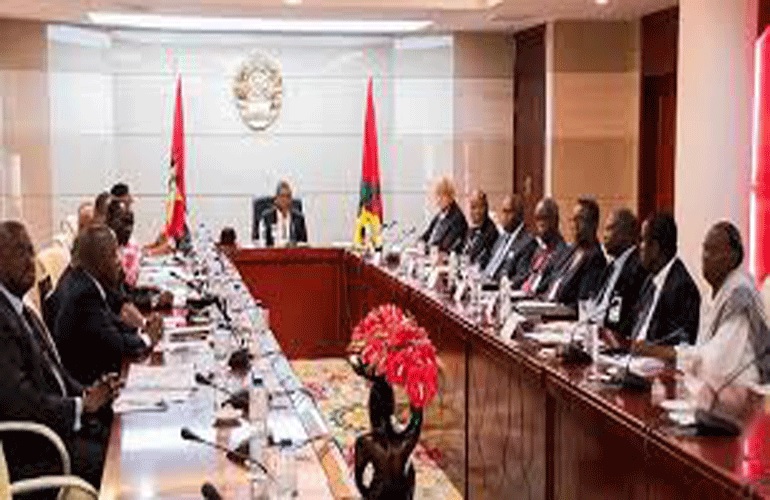Mozambique: Central bank's advances and loans to the State increased by 52% in 2024
Mozambique: Government approves four decentralisation regulations

File photo: Noticias
The government yesterday approved four regulations aimed at making functional the Provincial Assemblies created in the decentralisation legislative package.
These are the rules of the organisation, composition and operation of the Provincial Assembly; of the fundamental principles for the elaboration of the Provincial Assembly rules; the organic statute of the technical secretariat of the Provincial Assembly; and the legal framework of state supervision over decentralised provincial governing bodies and local authorities.
The documents were approved in Maputo yesterday at the 35th ordinary session of the Council of Ministers, the last of this year.
Speaking to the press after the session, government spokeswoman Ana Comoana explained that the rules governing the organisation, composition and functioning of the Provincial Assembly determine the organs of the Provincial Assembly, namely the plenary, the provincial assembly table, the working committees and their functions.
In addition to establishing the operating rules of the Provincial Assembly, the instrument sets out the rights and duties of the members of this provincial body and also defines specific competences within the regulatory power of the Provincial Assembly, in particular those concerning decentralised governance.
As for the fundamental principles for the drafting of the Provincial Assembly bylaws, Comoana, who is also Deputy Minister for Culture and Tourism, said that they define the general competences and conditions for the drafting, approval and amendment of the Provincial Assembly bylaws.
The regulation approved yesterday also sets out the contents of the Rules of Procedure – the basic rules of operation of the different organs of the Provincial Assembly, and also the way in which the internal elections of the members for the different functions should be managed.
Comoana also noted that the regulation determines the mechanisms for articulating the fundamental principles for the elaboration of the Provincial Assembly rules, saying: “This instrument aims to define the guidelines for the elaboration of the Provincial Assembly’s regulations.”
Regarding the organic statute of the technical secretariat of the Provincial Assembly, the Council of Ministers spokeswoman stated that it aims to create conditions for the assemblies to acquire a technical and administrative structure that fits their functions.
“Therefore, the organic statute of the Technical Secretariat is approved by this decree,” she added, noting that the instrument includes the law of general rules, and the nature, functions and areas of activity, including the structure, powers and the regime of the staff.
Regarding the legal framework of the state over decentralised, provincial and local government bodies, Comoana explained that the instrument defines the scope of the provincial executive bodies and local authorities.
She said that the instrument also establishes the powers for the exercise of supervision, explaining that in principle this competence belongs to the Council of Ministers, which delegates it to the Minister of State Administration “depending on the matters concerned”.
The instrument has the scope of protection of the Secretary of State, a body created by the same law in the event that the Council of Ministers delegates it to settle related matters.
Still on the legal framework of state supervision over the provincial decentralised governance bodies and local authorities, Ana Comoana noted that the document lays out sets the sanctions applicable to decentralised governance bodies and local authorities in case of the law being violated.
The Council of Ministers also yesterday approved the draft law for the investiture of members of the provincial assembly, the provincial governor and the Secretary of State in Maputo city, establishing the formalities of the event, indicating the participants, and defining the competences of the director of the endowment act.
“In the circumstances, the presiding judge of the Provincial Judicial Court, in the case of the Provincial Assembly and the governor; and the representative of the President of the Republic in the case of presentation of the Secretary of State,” she explained.
The provincial governors, members of the provincial assembly and the secretary of state must take office no longer than 30 days after the validation of the electoral results by the Constitutional Council, scheduled for next Monday, December 23.












Leave a Reply
Be the First to Comment!
You must be logged in to post a comment.
You must be logged in to post a comment.